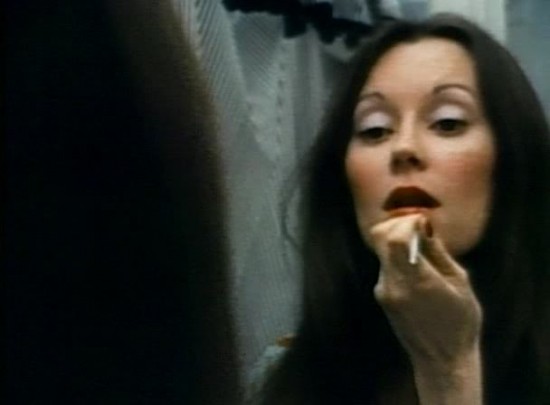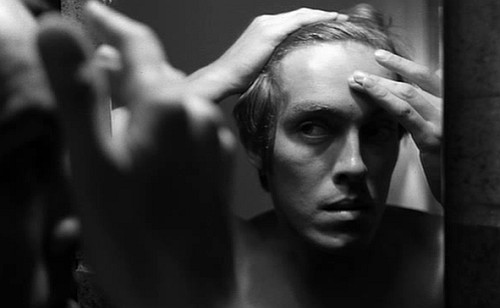The Best Found Footage/Mock-Doc Movies You Probably Haven't Seen
Hello. Allow me to introduce myself. My name is Jordan Hoffman and I'm an old man. Well, not THAT old, but, let's just say that for me the phrase "VHS or Beta?" was more than just an indie band, it was an actual decision.
After film school I worked in the development offices of a New York-based production company for a few years, then did some solid Web 1.0 work at About.com. Then I made two independent films, both of which are good, neither of which made me any money. Eventually I got back into the writing game, working at Hearst's UGO.com for over four years and now I'm having a blast reviewing and writing about film for a number of different publications.
The fine folk here at /Film have allowed me this weekly column to put on my bifocals, peer into the rich history of cinema and make some recommendations that may be unknown to you.
Since the big release this weekend is the extremely entertaining Chronicle I thought it might be a good idea to think back to a time before Cloverfield or go deeper than The Blair Witch Project.
Here are eight films that used "real" footage in innovative and creative ways and whose effects are still being felt today.
Man Bites Dog (1992); Belvaux, Bonzel & Poelvoorde, directors
This black as night Belgian satire is not for the weak of heart. A small team of documentary filmmakers begin profiling a serial killer. What we see is what they record and what they record is. . .disturbing. Not just because of the murders, but the workmanlike attitude the subject takes in committing them, followed by the way in which he lures the crew to the darkside with him.
The roughest sequence is the way our "heroes" take part in a jolly, drunken rape, singing an ode to cinema. It's a direct indictment of us for watching and though I haven't seen the film in 20 years I can still hear that song ("CinemAAAAA") in my head. The shocking last shot of the film is the grandaddy of all the final shots we see in found footage movies today.
David Holtzman's Diary (1967); Jim McBride, director
It was a lot harder to navel-gaze back in the days of 16mm cameras and NAGRA audio recorders, but those who had the will found a way.
A somewhat sarcastic take on the cinema verite boom of the late 1960s, David Holtzman's Diary, a collaborative effort between Jim McBride, eventual Woodstock producer Michael Wadleigh and writer/star L. M. "Kit" Carson (an indie film denizen who, so he's wont to repeat, was influential in introducing Quentin Tarantino to Harvey Keitel) is the ur-text about would-be artistic guys moping around their apartments.
Holtzman (Carson, seen at the top of this article) wants his "camera eye" to expose something important about the Vietnam war or relationships, but all he winds up doing is pissing people off, his noble enterprise eventually devolving into just leering at his sexy neighbor. It's kinda-funny, kinda-sad and if you didn't know it was fake you might have a hard time guessing.
No Lies. . . (1972); Mitchell Block, director
It's rare that I get too worked up about a short film, but then it is rare for a short to get entered into the Library of Congress' National Registry.
No Lies. . . seems at first to just be a film student testing out his new camera as his girlfriend gets dressed for an evening out. The intrusive nature of the camera inspires the woman to confess that she'd been recently raped, which the cameraman-boyfriend refuses to believe. The patter between the two remains impersonal and professional because of the interview dynamic, a complete reversal of the usual emotional collapse. And then all hell breaks loose.
It is a gripping piece of work and you can watch it in its entirety, legally, here.
Cannibal Holocaust (1980); Ruggero Deodato, director
I can't lie and say I there's much I find enjoyable in Cannibal Holocaust, but it has a unique place in cinema history as being one of the few films where the marketing was so good it landed the director in jail.
The movie concerns the disappearance of an anthropological team in the Amazon. All that remains are film reels that are so gross, man, they had to be real. Director Ruggero Deodato was arrested on obscenity charges and many believed that the picture was actually a snuff film. Humorously enough, the actors were contractually obligated to stay away from publicity, to perpetuate the myth that they were killed, so they were unable to come and clear his name.
The charges were dropped, though the film is still banned in many countries due to some non-faked animal deaths and the overall grossness of the thing.
The Troll Hunter (2011); André Øvredal, director
So Troll Hunter is certainly one you've heard about, but if I've gotta twist a few more arms to get more people to see it, well, that's fine with me.
One of the most creative of the recent found footage films, this one has got yet another small film crew following a guy around as he goes about his job. Only his job is patrolling the cold, scary North looking for trolls.
This film has a real fun spirit with terrific special effects (done on impressive low budget) and a wonderful dead-pan sense of humor. There's allegedly a Chris Columbus-backed remake on the way, so best to see this now before it gets bleached of its originality.
Stereo (1969); David Cronenberg, directorStereo is a non-synch sound, sixty minute film usually paired with Cronenberg's stylistically similar (though shot in color) film Crimes of the Future. They're both terrific, but Stereo is the one that blows my mind just a little bit more.
It is, ostensibly, a scientific research record (Tile 3B of a Canadian Academy of Erotic Enquiry Mosiac, to be precise) and has the detached, droning voice-over to prove it. Stereo is the type of film that DARES you to get bored and fall asleep, but if you hover just at the precipice and let logic fall by the wayside you'll discover an atmospheric and altogether heavy trip into expanded states of consciousness, extra sensory perception and polymorphous sexuality that is just tongue-in-cheek enough to keep you going.
Hey – have a spare hour? You can watch it in its entirety, legally, here.
Dadetown (1995); Russ Hexter, director
You don't know me too well, but I'm a pretty sharp guy. I rarely have to use a calculator to figure out the tip at a restaurant. So you should have seen just how surprised I was back in 1995 when I saw Dadetown, a documentary about a white collar tech company moving into a blue collar town that – SURPRISE! – turned out to be fake and only revealed itself about thirty seconds before the closing credits.
The film presents itself as a serious, post-Roger & Me look at economic issues taking a fly-on-the-wall look at local government and individual families. When it is discovered that everyone is faking it, the curtain is pulled back to reveal something of a greater truth.
I'd link you to a clip or something, but there's virtually no record of this movie existing (that rinky-dink image is the biggest one I could find), and the director never did anything again. If anyone has a VHS of it laying around, I'd love to hear about it.
Medium Cool (1969); Haskell Wexler, director
We've talked about found footage, mock-documentaries, stuff that might be real and stuff we know is faked. Medium Cool was one of the first narrative films that had an elastic enough production to allow actual documentary material to weave itself into its story. Plus it did so with Frank Zappa on the soundtrack.
Luckily, Medium Cool is about a documentary cameraman, so this boundary-defying quest for higher truths doesn't seem overly forced, even when we venture into the 1968 Chicago demonstrations. The film's most heavy moment comes when a teargas canister is shot toward the camera and a crewman shouts "Look out, Haskell, it's REAL!"
Woah. That is, like, totally far out.



